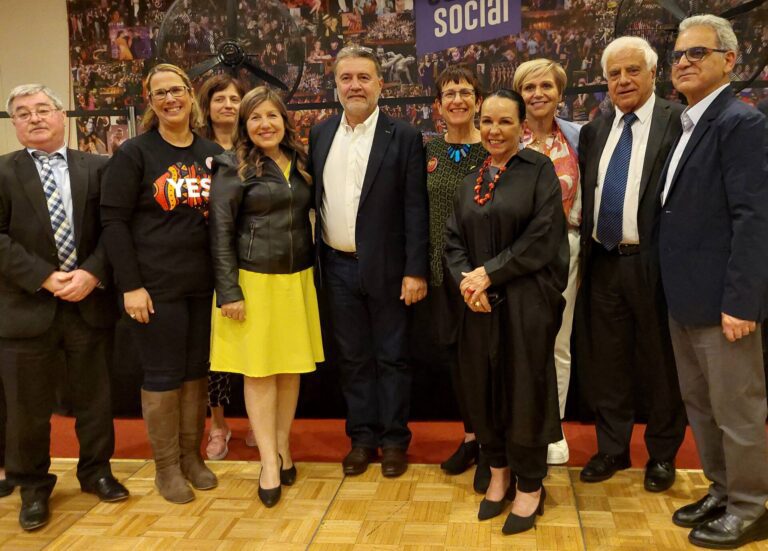A passionate plea was made by senior figures in the Greek community for a yes vote in the upcoming referendum at an event where federal minister Linda Burney forcefully asserted that a yes vote would unify the country.
The Greek Orthodox Community (GOC) of NSW held a public Voice forum on Thursday evening, hosted at the Cypriot Community Club of NSW in Stanmore.
The event featured six different speakers who all spoke their minds for The Voice, headlined by Federal Minister for Indigenous Australians, Linda Burney.
Ms. Burney discussed some of the reasons she heard people give for not voting yes, calling them untruths.
“People told me, ‘If The Voice succeeds, my rates will go up. There will be a new property tax, I will lose my house. “…This is not true,” said the MP for Barton in her speech.
Ms Burney, who has maintained close ties to the Greek community as the MP for Barton and former State Member for Canterbury, explained that the Voice is about recognition, truth and unity, noting that it will bring us closer. closer than the Australians.
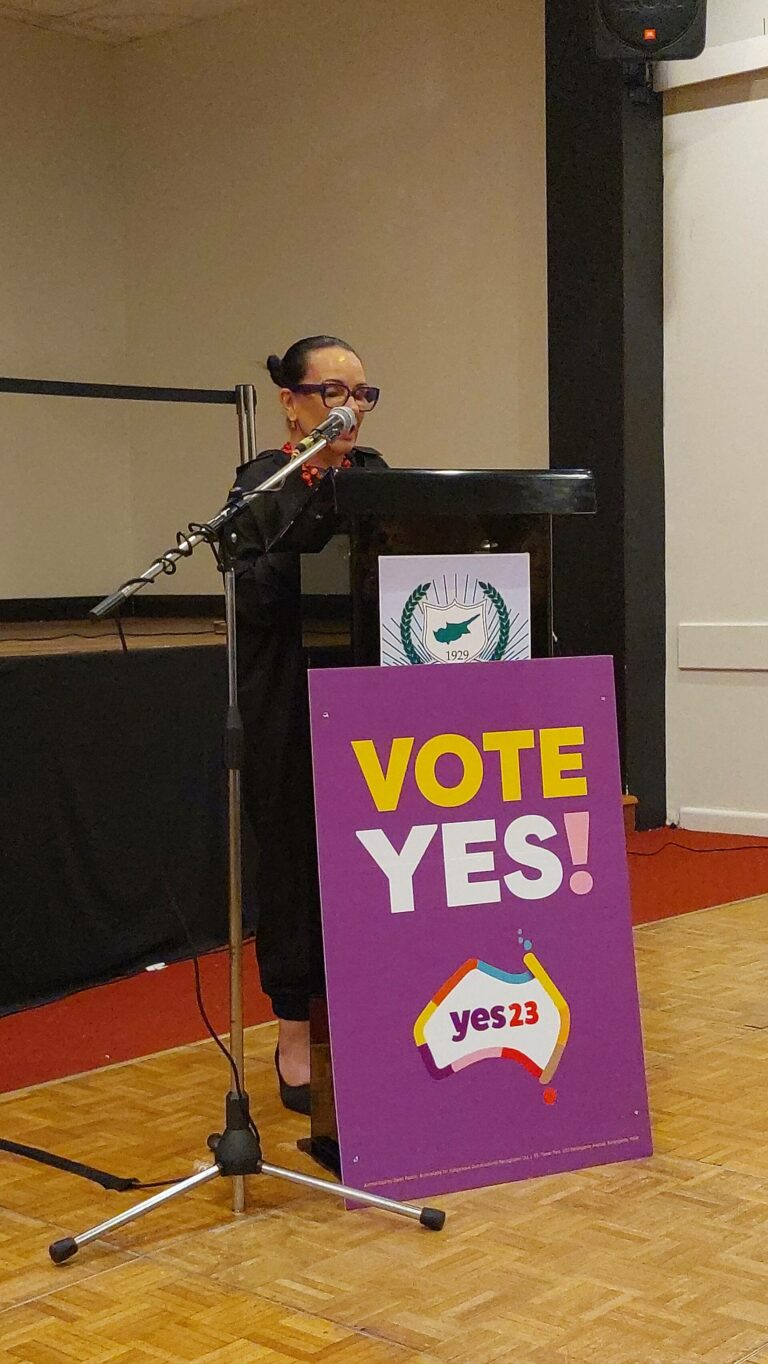
“It’s about recognizing the long and amazing history of this country and it’s not just my story as an Aboriginal person, it’s yours too. We share a nation 65,000 years old. This is what will unify us and bring us together,” she said.
“By creating an Indigenous advisory body to Parliament, we will ensure our voices are heard. All of this will lead to better results.
She then outlined the different disadvantages that Aboriginal and Torres Strait Islander communities may face, one being water polluted with chemicals or even uranium that makes drinking, bathing and laundry unsafe. , stressing that “it’s not fair in a country like ours”.
She concluded her speech by saying that “language is the mirror of the soul, and it is through things like voice and recognition that we can see our soul again.”
Angelo Gavrielatos, president of the NSW Teachers’ Federation, called The Voice an opportunity to “right a grave historical wrong”.
Mr Gavrielatos referred to Prime Minister Anthony Albanese’s description of the Constitution as the birth certificate of a country, saying Australia’s is not yet complete.
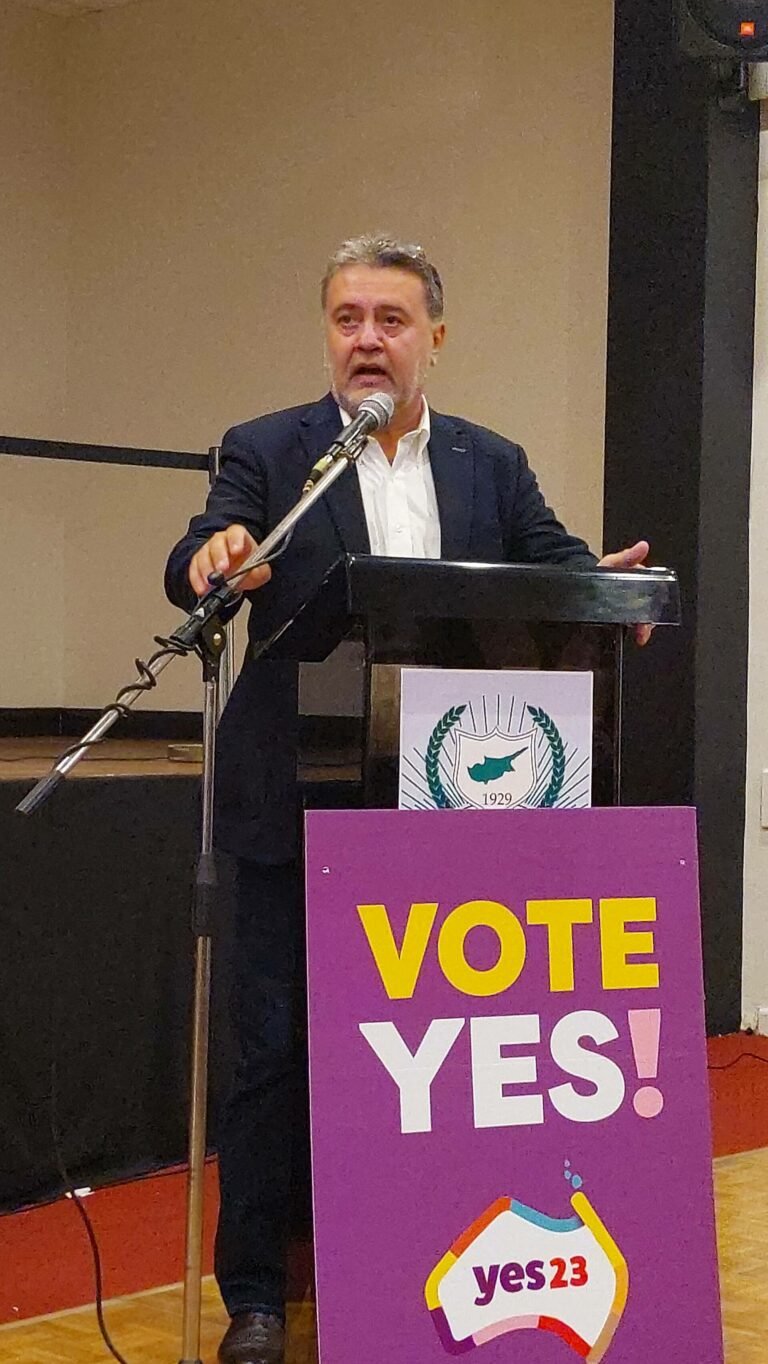
“Our (Australian) birth certificate is incomplete because it does not mention anywhere that a people had already existed in this place for 65,000 years before the arrival of the white man,” he said.
He called it “unfinished business” and said the referendum offered a chance to fix the Constitution and show recognition in the form of a voice in Parliament.
The President of the NSW Teachers Federation spoke about the key values instilled in him by his parents and the Greek community growing up (a sense of history, truth, justice-δικαιοσύνη) and that if one considers these values, there is only one answer: vote. Yes.
He also highlighted his concern about the psychological and mental effect a no result would have on young Indigenous Australians.
“I fear the impact it would have on our Aboriginal and Torres Strait Islander brothers and sisters if we were delegitimized,” Mr Gavrielatos said.
“The whole day is about being recognized and then if people say, ‘No, we don’t recognize you,’ I worry that that will impact the nation as a whole, but also them in particular.”
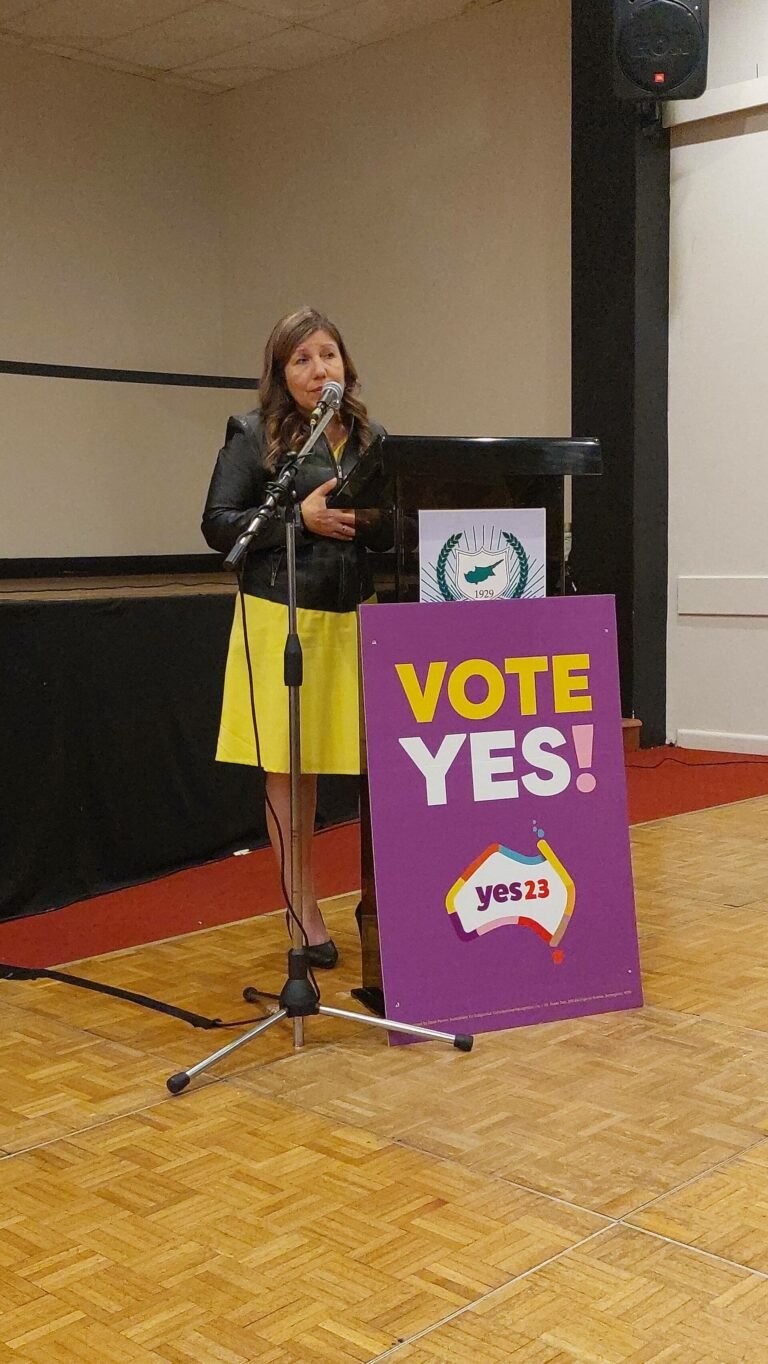
Sophie Cotsis, NSW Minister for Industrial Relations and Minister for Workplace Health and Safety, expressed her belief that the issue was too complicated and came down to two things.
“First, it’s about recognizing our indigenous brothers and sisters in the Constitution because they’ve been here for 65,000 years. Second, it’s about listening to what our Indigenous brothers and sisters are saying,” Ms. Cotsis said.
Andrew Costa, President of the Cypriot Community of New South Wales, has given his personal perspective on his decision to vote Yes, driven by his own experience, recounting his involvement in the anti-apartheid protests when the rugby team from South Africa came to Australia. in 1971.
He noted that the disadvantages faced by Aboriginal and Torres Strait Islander people indicate the need for action such as the Voice to Parliament proposal.
“When I look at the poor health conditions, the poor housing, the employment opportunities of indigenous people, then I am for it. Let’s get started. If this is a start, it may not be the solution, but how can we say no to this start? Mr. Costa said in his speech.
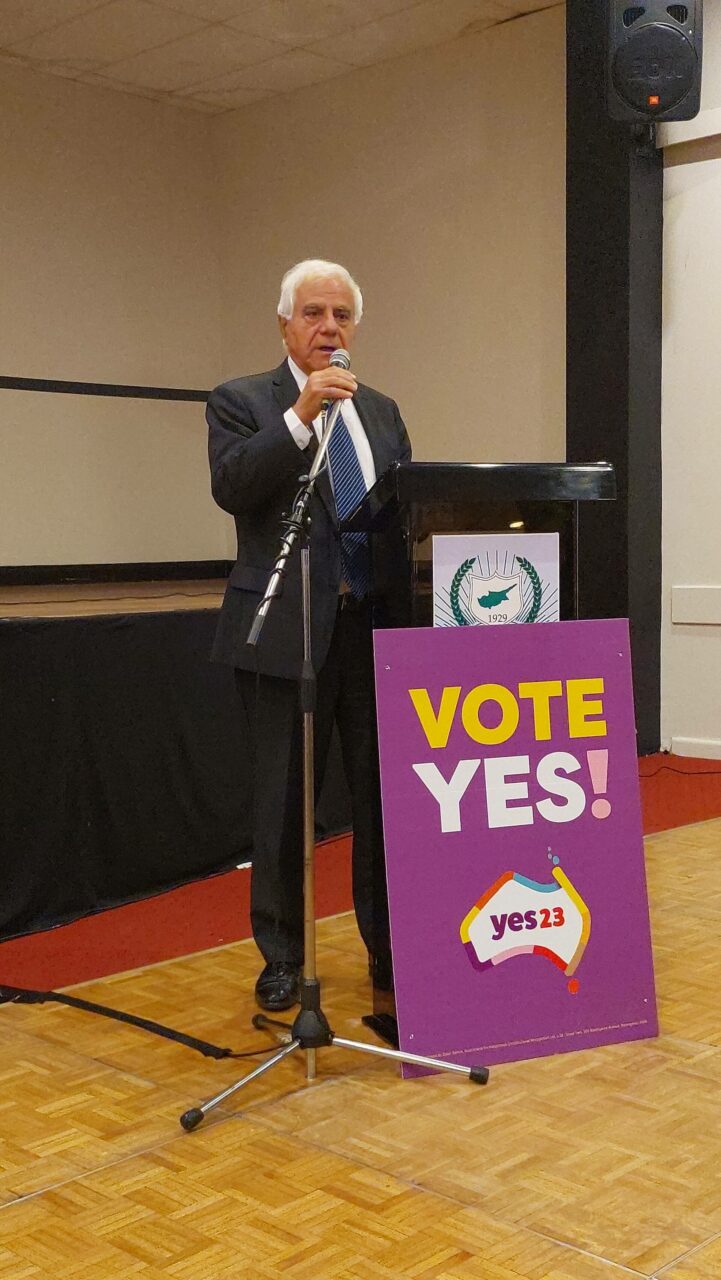
COG President Harry Danalis.
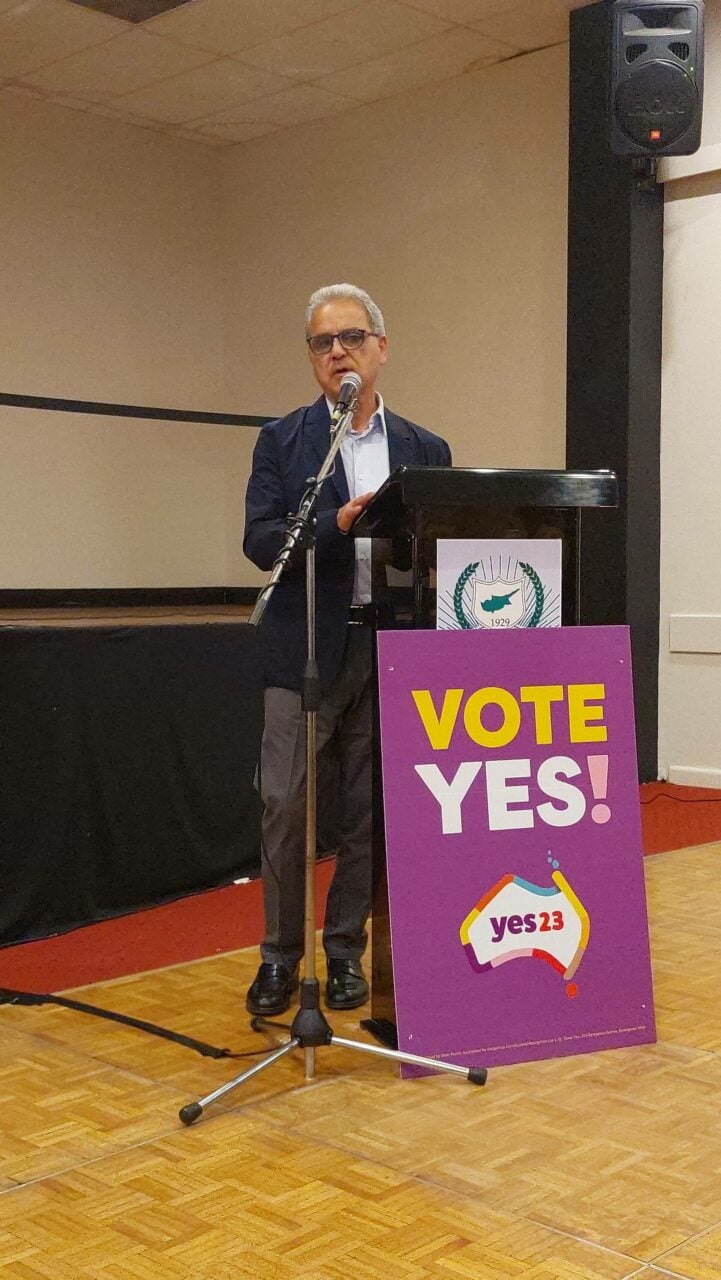
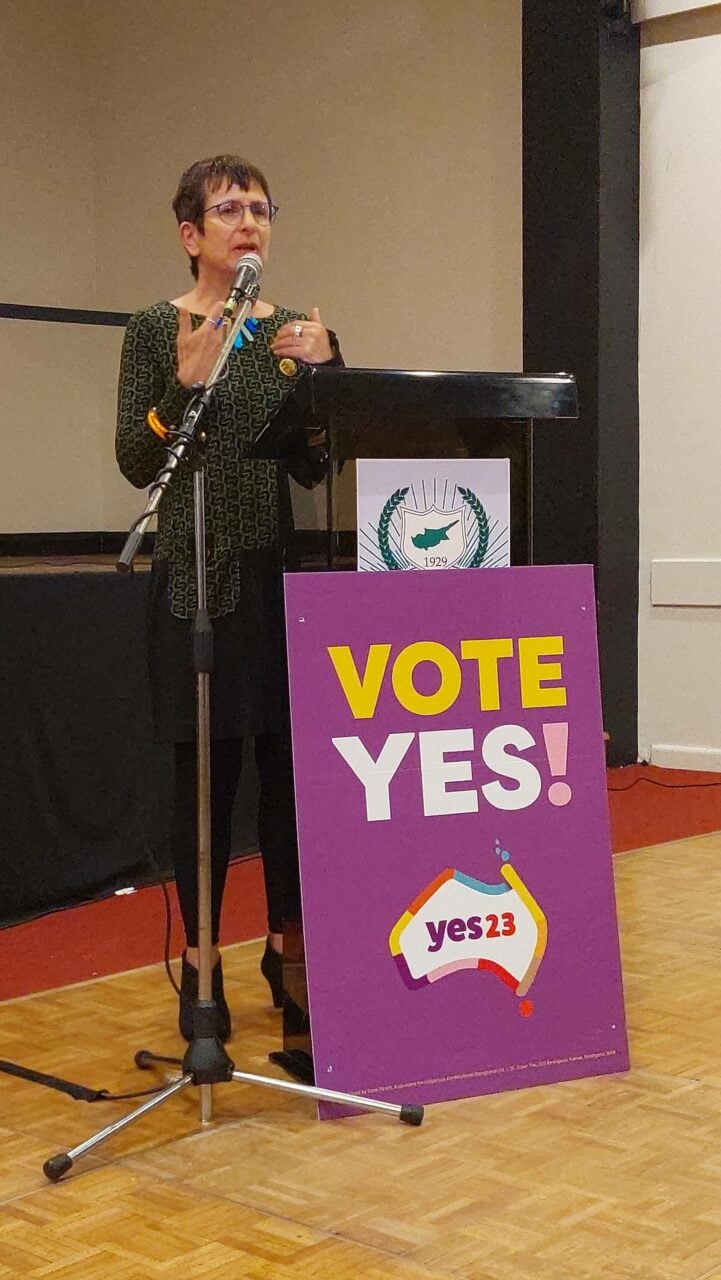
Harry Danalis, president of the NSW GOC, said the GOC supported the Yes vote, saying it was a “humanitarian issue and a human rights issue”.
He noted that organizations similar to the one proposed in this referendum have helped indigenous peoples of other nations improve their conditions.
“Abroad, where such measures have been taken and where indigenous populations have had the opportunity to voice their own proposals, programs and initiatives, it has been demonstrated that these measures are much more effective than simple solutions imposed by ‘at the top,’ Mr. Danalis said.
Kay Pavlou, an award-winning documentary and fiction director born in Australia to Cypriot parents, noted that “the Voice is a way for Aboriginal people to express what is important to them, their religion, their children, their health”, with they are able to speak from their own experience.
Ms. Pavlou stressed that their voices are difficult to hear, because they represent only 3 percent of the population, and that the remaining 97 percent “need to be with them and walk with them.”
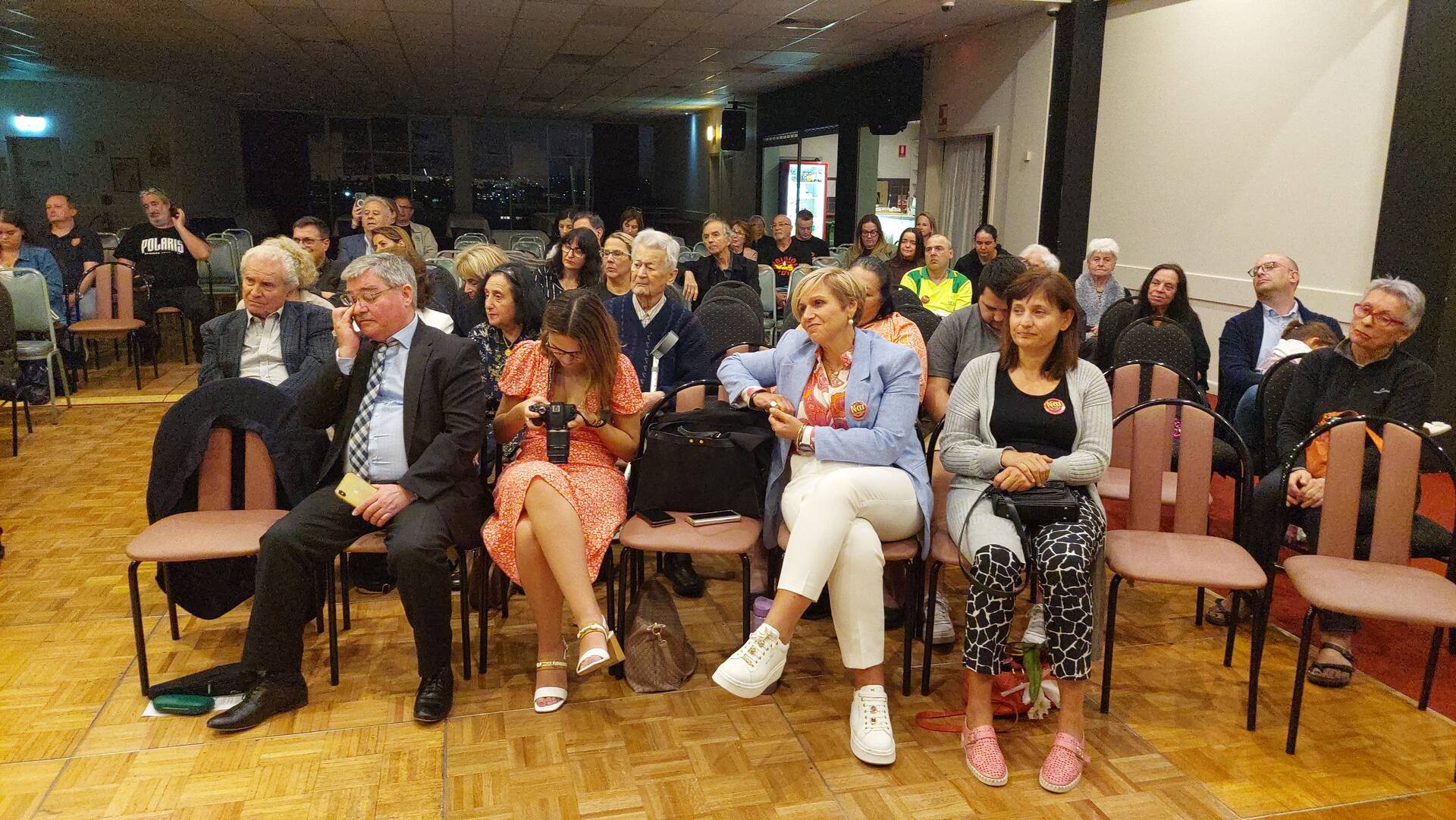
The event concluded with a question-and-answer session during which guests were able to ask questions regarding the upcoming referendum.


